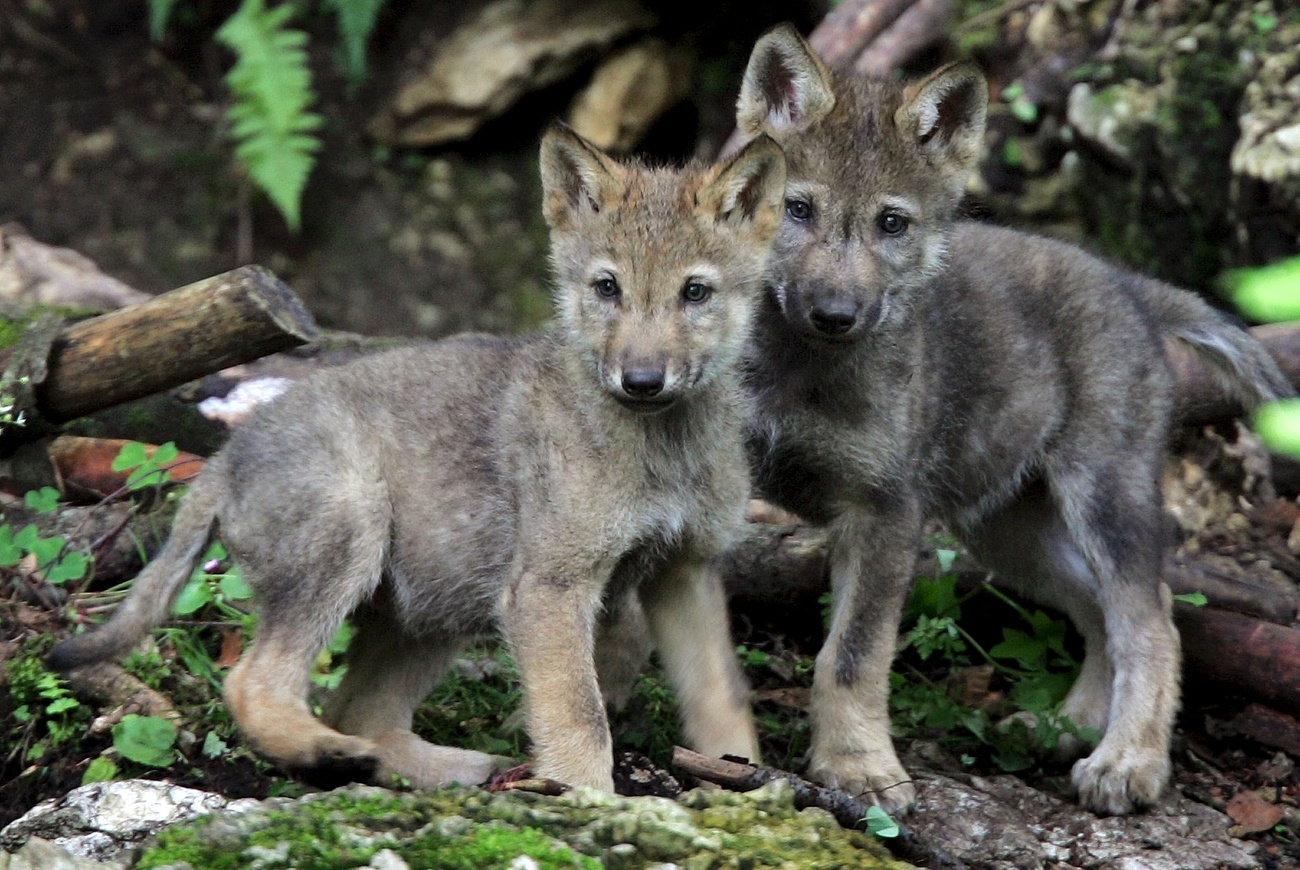
Eleven Graubünden wolf packs with offspring

In the Swiss canton of Graubünden, 11 out of 12 wolf packs have bred this year. The authorities has so far been able to identify 46 puppies. With the exception of the Upper Engadine, wolf packs now live in all Graubünden valleys.
There is also evidence of individual wolves from all valleys in the canton with a low wolf presence to date. The cantonal office for hunting and fishing wrote this in the third quarterly report on large carnivores, which was published on Monday.
“Due to the high dynamics, it can be assumed that further pairs will form over the course of the winter months,” it said. It is still unclear how many wolves live in the canton. A cantonal estimate of the inventory has not yet been completed. In mid-September, the authorities estimated the number of wolves at over 100.
The canton submitted applications for population regulation to the Federal Office for the Environment for six packs in the Surselva, the Misox, the Hinterrheintal and on the Lenzerheide. Four applications have now been approved, one has been rejected and one is still pending.
The large carnivores killed 226 farm animals in the third quarter. With the exception of two calves or cattle, they were sheep and goats.
This news story has been written and carefully fact-checked by an external editorial team. At SWI swissinfo.ch we select the most relevant news for an international audience and use automatic translation tools such as DeepL to translate it into English. Providing you with automatically translated news gives us the time to write more in-depth articles. You can find them here.
If you want to know more about how we work, have a look here, and if you have feedback on this news story please write to english@swissinfo.ch.

In compliance with the JTI standards
More: SWI swissinfo.ch certified by the Journalism Trust Initiative




























You can find an overview of ongoing debates with our journalists here . Please join us!
If you want to start a conversation about a topic raised in this article or want to report factual errors, email us at english@swissinfo.ch.